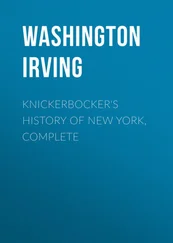When the German saw that a bear was after him, he had not yet got his bearings; he was unsure which way the main road was. If he’d found the main road, of course, he could have outdistanced the bear, but confined to the narrow paths and walkways, of the hotel grounds, and the soft fields for sports, he lacked the necessary speed.
“Earl!” growled the bear. The German swerved across the croquet lawn and headed for the picnic tents where they were setting up for lunch. The bear was on the motorcycle in less than twenty-five yards, clumsily trying to mount behind the German—as if State o’Maine had finally learned Freud’s driving lesson, and was about to insist that the act be performed properly.
The German would not allow Freud to stitch him up this time and even Freud confessed that it was too big a job for him. “What a mess,” Freud wondered aloud to my father. “Such a lot of stitches—not for me. I couldn’t stand to hear him bawl all the time it would take.”
So the German was transported, by the Coast Guard, to the hospital at Bath. State o’Maine was concealed in the laundry room so that the bear’s mythical status as “a wild animal” could be confirmed.
“Out of the voods , it came,” said the revived German woman. “It must haf been incensed by der noise from der motorcycle.”
“A she-bear with young cubs,” Freud explained. “ Sehr treacherous at this time of year.”
But the management of the Arbuthnot-by-the-Sea would not allow the matter to be dismissed so easily; Freud knew that.
“I’m leaving before I have to talk with him again,” Freud told Father and Mother. They knew that Freud meant the owner of the Arbuthnot, the man in the white dinner jacket who occasionally showed up for the last dance. “I can just hear him, the big shot: ‘Now, Freud, you knew the risk—we discussed it. When I agreed to have the animal here, we agreed he would be your responsiblity.’ And if he tells me I’m a lucky Jew—to be in his fucking America in the first place—I will let State o’Maine eat him!” Freud said. “Him and his fancy cigarettes, I don’t need. This isn’t my kind of hotel, anyway.”
The bear, nervous at being confined in the laundry room and worried to see Freud packing his clothes as fast as they came out of the wash—still wet—began to growl to himself. “Earl!” he whispered.
“Oh, shut up!” Freud yelled. “You’re not my kind of bear, either.”
“It was my fault,” my mother said. “I shouldn’t have taken his muzzle off.”
Those were just love bites,” Freud said. “It was the brute’s claws that really carved that fucker up!”
“If he hadn’t tried to pull State o’Maine’s fur,” Father said, “I don’t think it would have gotten so bad.”
“Of course it wouldn’t have!” Freud said. “Who likes to have hair pulled?”
“Earl!” complained State o’Maine.
“That should be your name: ‘Earl!’” Freud told the bear. “You’re so stupid, that’s all you ever say.”
“But what will you do?” Father asked Freud. “Where can you go?”
“Back to Europe,” Freud said. “They got smart bears there.”
“They have Nazis there,” Father said.
“Give me a smart bear and fuck the Nazis,” Freud said.
“I’ll take care of State o’Maine,” Father said.
“You can do better than that,” Freud said. “You can buy him. Two hundred dollars, and what you got for clothes. These are all wet!” he shouted, throwing his clothes.
“Earl!” said the bear, distressed.
“Watch your language, Earl,” Freud told him.
“Two hundred dollars?” Mother asked.
That’s all they’ve paid me, so far,” Father said.
“I know what they pay you,” Freud said. “That’s why it’s only two hundred dollars. Of course, it’s for the motorcycle, too. You’ve seen why you need to keep the Indian, ja ? State o’Maine don’t get in cars; they make him throw up. And some woodsman chained him in a pickup once—I saw that. The dumb bear tore the tailgate off and beat in the rear window and mauled the guy in the cab. So don’t you be dumb. Buy the Indian.”
Two hundred dollars,” Father repeated.
“Now for your clothes,” Freud said. He left his own wet things on the laundry room floor. The bear tried to follow them to my father’s room, but Freud told my mother to take State o’Maine outside and chain him to the motorcycle.
“He knows you’re leaving and he’s nervous, poor thing,” Mother said.
“He just misses the motorcycle,” Freud said, but he let the bear come upstairs—although the Arbuthnot had asked him not to allow this.
“What do I care now what they allow?” Freud said, trying on my father’s clothes. My mother watched up and down the hall, bears and women were not allowed in the men’s dorm.
“My clothes are all too big for you,” my father told Freud when Freud had dressed himself.
“I’m still growing,” said Freud, who must have been at least forty then. “If I’d had the right clothes, I’d be bigger now.” He wore three of my father’s suit pants, one pair right over the other; he wore two suit jackets, the pockets stuffed with underwear and socks, and he carried a third jacket over his shoulder. “Why trouble with suitcases?” he asked.
“But how will you get to Europe?” Mother whispered into the room.
“By crossing the Atlantic Ocean,” Freud said. “Come in here,” he said to Mother; he took my mother’s and father’s hands and joined them together. “You’re only teen-agers,” he told them, “so listen to me: you are in love. We start from this assumption, ja ?” And although my mother and father had never admitted any such thing to each other, they both nodded while Freud held their hands. “Okay,” Freud said. “Now, three things from this follow. You promise me you will agree to these three things?”
“I promise,” said my father.
“So do I,” Mother said.
“Okay,” said Freud. “Here’s number one: you get married, right away, before some clods and whores change your minds. Got it? You get married, even though it will cost you.”
“Yes,” my parents agreed.
“Here’s number two,” Freud said, looking only at my father. “You go to Harvard—you promise me—even though it will cost you.”
“But I’ll already be married,” my father said.
“I said it will cost you, didn’t I?” Freud said. “You promise me: you’ll go to Harvard. You take every opportunity given you in this world, even if you have too many opportunities. One day the opportunities stop, you know?”
“I want you to go to Harvard, anyway,” Mother told Father.
“Even though it will cost me,” Father said, but he agreed to go.
“We’re up to number three,” Freud said. “You ready?” And he turned to my mother; he dropped my father’s hand, he even shoved it away from his so that he was holding Mother’s hand all alone. “Forgive him,” Freud told her, “even though it will cost you.”
“Forgive me for what?” Father said.
“Just forgive him,” Freud said, looking only at my mother. She shrugged.
“And you !” Freud said to the bear, who was sniffing around under Father’s bed. Freud startled State o’Maine, who’d found a tennis ball under the bed and put it in his mouth.
“Urp!” the bear said. Out came the tennis ball.
“ You,” Freud said to the bear. “May you one day be grateful that you were rescued from the disgusting world of nature !”
That was all. It was a wedding and a benediction, my mother always said. It was a good old-fashioned Jewish service, my father always said; Jews were a mystery to him—of the order of China, India, and Africa, and all the exotic places he’d never been.
Читать дальше












